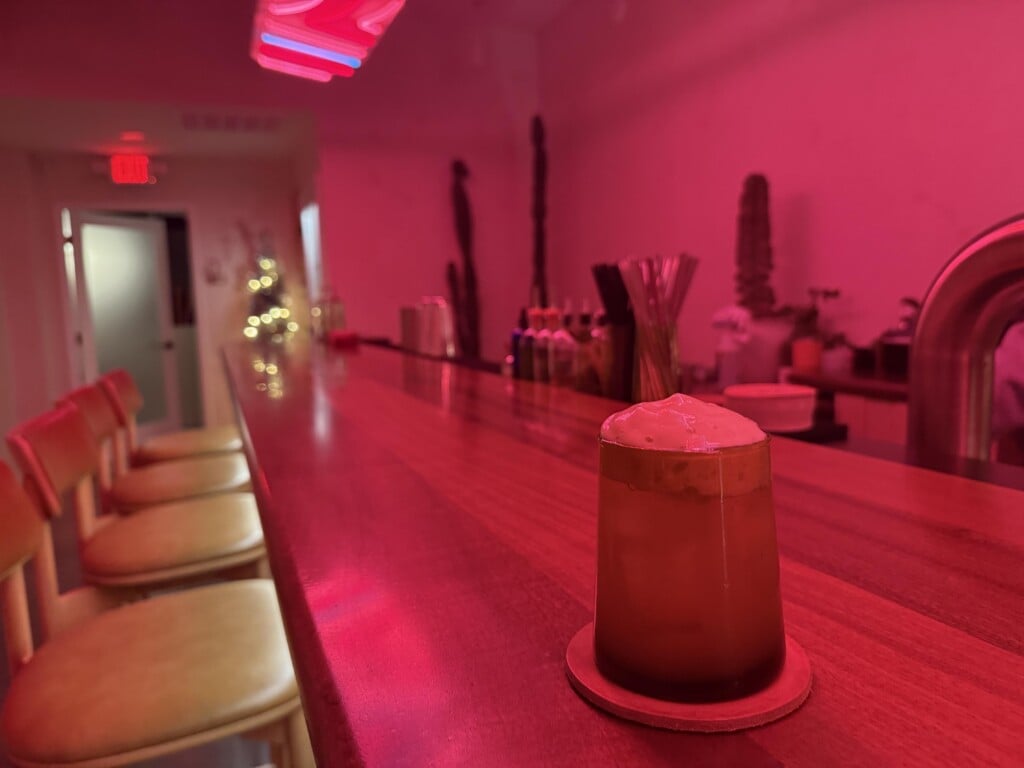In Mandarinism, Scott Lin has found a new way to understand Chinese food

Six or seven years ago, Scott Lin was visiting a friend who owned a small Chinese restaurant. The friend was packing up a large carryout order with popular dishes such as sesame chicken and General Tso’s chicken. Lin commented on the size of the order, and his friend shook his head and said, “We wouldn’t feed this stuff to the pigs in the village I’m from in China.”
Taiwan-born Lin was stunned by this response. “If you’re going to make your reputation serving Chinese cuisine,” he says he thought at the time, “shouldn’t it be by making the best possible dishes you can?”
That thought was the driving force behind his two-month-old restaurant, Mandarinism. Lin and his wife, Lian Sun, even chose the unusual name to set it apart from traditional Chinese-American restaurants. Instead of something typically picturesque, such as Mandarin Palace or Mandarin Garden, Lin wanted a word that stated his case in a bold, simple fashion. “We serve Mandarin cuisine, but in a contemporary and sophisticated way.”
To execute the kind of fare they wanted to serve in their 75-seat dining room, Lin and Sun hired an experienced American chef, Rodney Clodfelter (formerly chef and co-owner of Maya’s Mexican Bistro), to put a new spin on dishes that have become predictable standards over the past 30 years. Clodfelter has done an amazing job. Even the most boring Chinese-American starter, shrimp toast, gets a dramatic revival here as baked shrimp crostini made with slices of French baguette, a compote of chopped tomatoes and peppers, minced shrimp and a bubbly blanket of cheese.
“It’s one of the best things I’ve ever tasted,” said Alyssa, an Australian friend who was making another stop in Kansas City during her cross-country travels. She likes to tell people — me, in particular — that she’s a food snob. But Mandarinism quickly won her over.
We were dining with Addison and Delilah. A few nights earlier, I had tried to take Addison to dinner at this same restaurant, but after driving up and down 135th Street several times, I still couldn’t find the place. Once I secured more precise directions, I understood why I had kept passing the restaurant without seeing it. Mandarinism is in one of those big new Leawood shopping developments that are neither completed nor fully rented. Don’t make the assumption, as I did, that just because all the retail spaces around Mandarinism are empty, the restaurant isn’t there.
Lin and Sun have faith in this location. They predict serious growth in this stretch of Leawood, and after running a different restaurant in Westport for several years (Lin owned the New Peking Restaurant from 2002 to 2006), they wanted to make a go of it in the suburbs. It helps that they live a few blocks away — it’s easy for Lin to slip away during the day to walk his dog.
Leawood’s gain is Kansas City’s loss. There are issues, though. Many of the locals who come in to dine don’t understand why crab rangoon isn’t on the menu (Lin is tinkering with the idea of wontons filled with goat cheese) or why dinners are more expensive than the little neighborhood joints that sell chop suey and lemon chicken. But Mandarinism isn’t that kind of Chinese place.
Like the Bo Lings restaurants, which have grown more stylish and spartan over the years, Mandarinism has a décor that’s light-years from gilded dragons and hanging lanterns. It’s a clean, cool look with celadon walls, black napkins on polished wood tables and groovy drum lights hanging over the bar. The music is soft and unobtrusive. And the waiters are handsome. “It adds another sensual element to the dining experience,” Delilah said.
Addison and Alyssa sipped martinis and gabbed while Delilah and I dipped lamb and veal dumplings into an ancho-chili sauce. The tray of assorted dumplings isn’t cheap, but it’s one of the most popular offerings here. After all, it’s not every day that you get to taste ground lamb in a wonton wrapper.
We wanted dishes we could share, so each of us ordered from a different category: I chose pork, Addison went with beef, Alyssa wanted duck and Delilah finally settled on the steamed trout — which turned out to be one of the least spectacular dishes. The fish was fresh, and the ginger-scallion sauce was good, but the best part was the vegetable on the side: baby bok choy sautéed in garlic.
Addison’s Shanghai slow-braised short ribs were fork-tender and arrived with a terrific crispy cabbage slaw dressed in Szechwan peppercorn vinaigrette. Before Addison noticed, I finished it off. Alyssa’s honey-cashew duck was filled with succulent slices of meat and sprinkled with bits of fresh mango, asparagus, peppers and honeyed cashews. Best of all, however, was the wok-fried Mandarin pork, cooked with ginger, onion and slivered carrots with a brandy-infused hoisin sauce and folded between eggy scallion pancakes. It was so mind-blowingly good, I could have eaten another order.
For dessert, we shared the trio of house-made sorbets — a surprisingly punchy green tea, a bland persimmon and a sultry pomegranate — served in martini glasses and, even better, a trio of warm egg-custard tartlets in buttery, flaky pastry. We couldn’t decide which was better: the one topped in crunchy cashew brittle, the sliced-mango version or the one laden with plump fresh berries. A first-rate finale.
A few nights later, I returned to dine by myself. I don’t get the chance to do this much anymore, but it’s great to unwind and listen in on conversations at adjoining tables. My favorite moment? The middle-aged bleach-blonde announcing to her friends, “I’ve joined Facebook!”
I stopped eavesdropping, though, with the arrival of my bowl of seafood wonton soup, a soothing, amber-colored broth with fat shrimp-and-scallop dumplings too big to eat directly from the bowl. I had to fish them out with a fork and put them on a plate so I could cut into them. A bit of work, but well worth the effort.
And even though orange beef is ubiquitous at Chinese restaurants, I’ve never tasted a version like the one at Mandarinism. Clodfelter takes hunks of juicy beef, dips them in an airy batter, flash fries them and glazes them in a savory-sweet sauce made with oranges and sun-dried tomatoes and sprinkled with chopped leeks. In a word: heavenly.
I was too full to take on dessert, though I was certainly tempted to succumb to the lychee panna cotta with a cup of the strong, fragrant French-press coffee served here. But I’ll definitely be coming back. “Mandarinism” might sound more like a Communiversity class than a restaurant, but this place has lessons I’m eager to learn.




